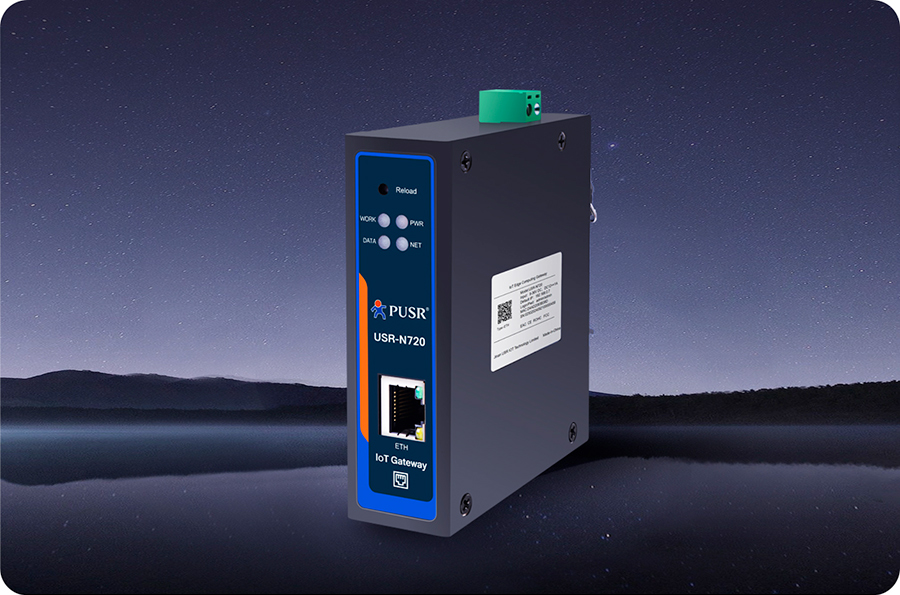Industrial IoT gateway meets special industrial networking communication needs
As a key hardware device, the Industrial IoT gateway plays a vital role in connecting industrial field devices with the upper network. With the rapid development of Industry 4.0 and Internet of Things technology, industrial IoT gateways are gradually becoming an important infrastructure for realizing device interconnection, remote monitoring, data analysis, predictive maintenance, and intelligent decision-making.
Diversified physical interfaces and protocol conversion
Industrial IoT gateways are usually equipped with multiple physical interfaces such as RS232/485 serial ports, network ports, WIFI and GPRS modules, enabling them to communicate with various industrial devices such as smart meters, PLC equipment, touch screens, and SCADA/DCS systems. In addition, the gateway can also adapt to various communication protocols such as Modbus, ModbusTcp, TCP/IP, OPC, and DTL645 to ensure smooth communication with most device controllers on site. This diverse interface and protocol support enables industrial IoT gateways to meet the complex communication needs of different industrial sites.
Strong data acquisition and transmission capability
As one of the basic functions of industrial gateways, data acquisition and transmission are the core. The gateway can collect data from industrial field equipment in real time, including equipment operating status, production data, environmental parameters, etc., and transmit the data to the upper network or cloud platform through 4G/5G, industrial bus interface, network interface, etc. This powerful data acquisition and transmission capability provides an important basis for production management and decision-making of enterprises.

Efficient edge computing capability
With the rise of the "cloud-edge collaboration" trend, industrial IoT gateways need to have the ability of edge computing. The gateway can perform data processing near the data source, such as intelligent collection, data filtering, alarm calculation, etc., thereby reducing the burden on cloud processing and improving the robustness and high concurrency of the system. In addition, edge computing can also provide faster response time. For some simple linkage control, alarm and other needs, it can be implemented locally through logic programming to improve the real-time performance of control and alarm.
Security and stability guarantee
As a bridge connecting industrial field devices and upper-layer networks, the security and stability of industrial IoT gateways are crucial. Gateways usually use various security measures such as hardware and software security encryption, wireless networking, high-performance chips, 4G routing, firewalls, etc. to protect the internal network from external threats and ensure the security and integrity of industrial data. At the same time, the gateway also needs to have long-term stable operation capability in harsh industrial environments to meet the needs of industrial production.
Remote maintenance and debugging services
For industrial sites, the cost of manual on-site maintenance is often high. Therefore, the industrial IoT gateway needs to provide remote maintenance and debugging services. By accessing the public network, the supporting debugging software can be remotely connected to the on-site gateway, allowing engineers to debug or troubleshoot issues in the office, thereby improving operational efficiency and reducing maintenance costs.
Wide range of application scenarios
Industrial IoT gateways are widely used in industrial automation, smart cities, manufacturing, smart agriculture, mechanical equipment, PLC control, intelligent robots, water supply equipment, intelligent transportation, smart factories and other fields. It can realize remote monitoring and control of equipment, understand the operating status of equipment in real time, detect and solve problems in a timely manner, and improve the stability and efficiency of production.
Industrial IoT gateways meet the diverse needs of special industrial networking communication with their diverse physical interfaces and protocol conversion capabilities, powerful data acquisition and transmission capabilities, efficient edge computing capabilities, security and stability guarantees, and remote maintenance and debugging services. With the continuous development of technology and the expansion of application scenarios, industrial IoT gateways will play a more important role in the future.